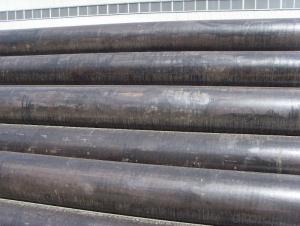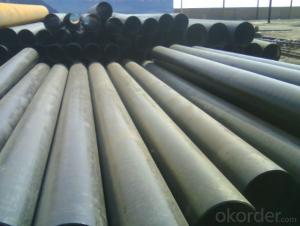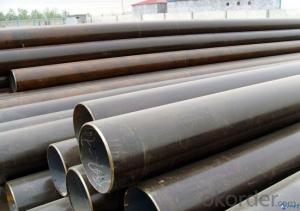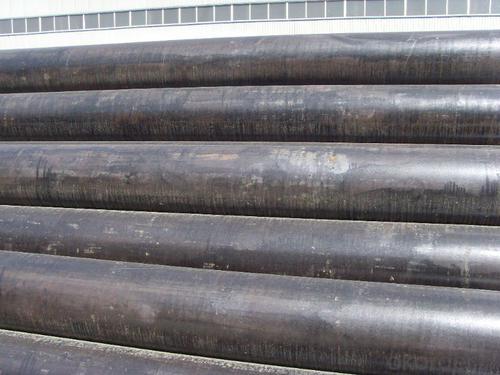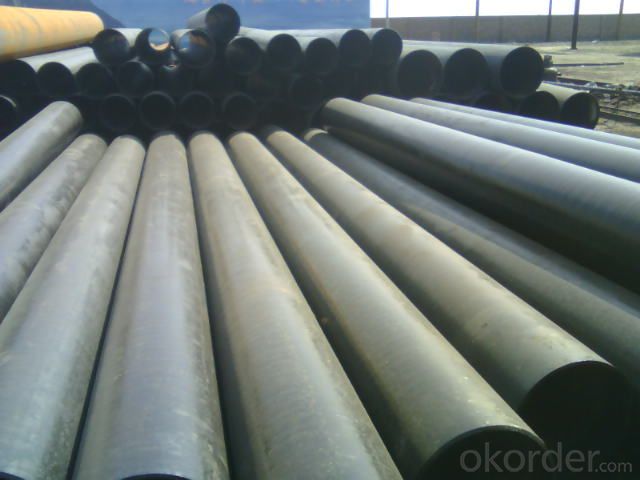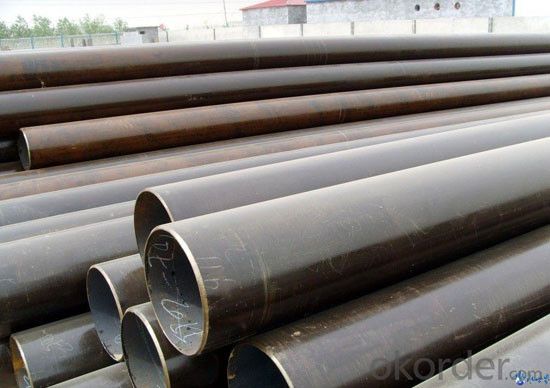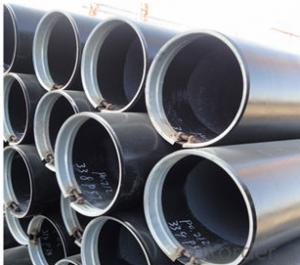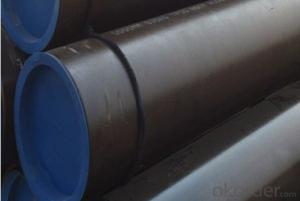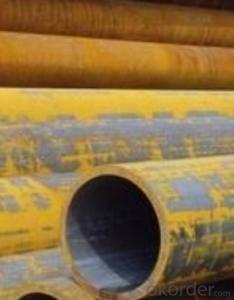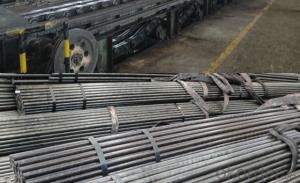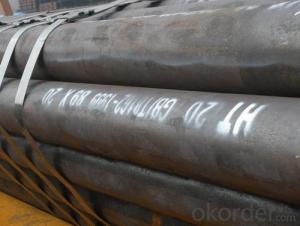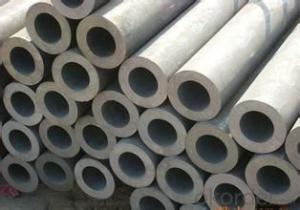Steel pipe for carbon seamless ,Q345, cnbm
- Loading Port:
- Qingdao
- Payment Terms:
- TT OR LC
- Min Order Qty:
- 10 pc
- Supply Capability:
- 30 pc/month
OKorder Service Pledge
OKorder Financial Service
You Might Also Like
Quick Details
Thickness: 6 - 50 mm Section
Shape: Round
Outer Diameter: 33 - 600 mm
Secondary Or Not: Non-secondary
Application: Fluid Pipe
Technique: Hot Rolled,Hot Rolled,Cold Drawn,Hot Expanded Certification: API Surface Treatment: Beveled end or plain end or varnished as per buyer
Special Pipe: API Pipe Alloy Or Not: Non-alloy
Brand Name: XPY(Xinpengyuan)
Length: 6-12m or according to clients' requirements
Standard: BS 3059-2,JIS G3454-2007,GB 5310-1995,GB 3087-1999,GB/T 8163-1999,GB/T 8162-1999,GB 6479-2000,DIN 1629/3,DIN 2448,ASTM A106-2006,ASTM A53-2007,API 5CT,API 5L,BS,JIS,GB,DIN,ASTM,API
Grade: 20#,45#,15CrMo,12Cr1MoV,16Mn,A53(A,B),A106(B,C),API J55,API K55,API N80,API P110,St52,St45,Q235,Q345,10#-45#,Cr-Mo alloy,A53-A369,API J55-API P110,ST35-ST52,Q195-Q345
Packaging Detail: Beveled end , plain end, varnished, or adding plastic caps/ according to customers' request
Bundles or loose, each bundles with 8 steel strips and
nylon slings wrapped with water proof plastic cloth.
We also pack our products according to customer’s requirement
- Q: Can steel pipes be used for water wells?
- Yes, steel pipes can be used for water wells. Steel pipes are commonly used in water well drilling due to their durability, strength, and resistance to corrosion.
- Q: What are the different methods of pipe lining for steel pipes?
- Pipe lining for steel pipes can be done using various methods, each with its own unique features and benefits. These methods include: 1. Spray lining: A specially formulated coating is sprayed onto the inside of the steel pipe, creating a protective barrier against corrosion and chemical damage. Spray lining is a popular choice for smaller pipes due to its cost-effectiveness and quick installation. 2. Cured-in-place pipe lining (CIPP): This method involves inserting a flexible liner into the steel pipe and then curing it in place using steam or hot water. CIPP restores the pipe's structural integrity and is commonly used for larger pipes without the need for excavation. 3. Slip lining: By inserting a slightly smaller diameter pipe into the existing steel pipe and filling the space between them with cementitious material, slip lining rehabilitates pipes with minor defects and extends their lifespan. 4. Fold-and-form lining: A flexible liner is inserted into the steel pipe and expanded to its diameter using mechanical or hydraulic processes. The liner is then folded and formed to fit the pipe's contours before being cured in place. Fold-and-form lining is suitable for pipes with irregular shapes or bends. 5. Coating lining: A protective coating is applied to the inside surface of the steel pipe using spraying, brushing, or rolling methods. This coating acts as a barrier against corrosion and chemical damage and is commonly used for large pipes or those in harsh environments. Each method has its own advantages and disadvantages, and the selection will depend on factors such as pipe diameter, condition, budget, and project requirements. Consulting with a professional pipe lining contractor is crucial to determine the most suitable method for a specific steel pipe rehabilitation project.
- Q: Can steel pipes be used for underground telecommunications networks?
- Indeed, underground telecommunications networks can utilize steel pipes. The strength, durability, and corrosion resistance of steel pipes make them a prevalent choice for underground applications. These pipes offer both protection and support for telecommunication cables, effectively enduring the pressure and load exerted underground. Moreover, applying protective coatings to steel pipes can augment their corrosion resistance and prolong their lifespan. All in all, steel pipes prove to be a dependable option for underground telecommunications networks.
- Q: How do you calculate the pipe pressure drop for steel pipes?
- To calculate the pressure drop in steel pipes, you can use the Darcy-Weisbach equation, which takes into account factors such as the pipe diameter, length, roughness, and the fluid flow rate. By plugging these variables into the equation, you can determine the pressure drop experienced by the fluid as it flows through the steel pipe.
- Q: Are steel pipes suitable for underground installations?
- Indeed, steel pipes prove to be a fitting option for underground installations. Their durability, strength, and resistance to corrosion have made them a widely utilized choice for such applications. Able to endure high pressure and extreme temperature fluctuations, steel pipes are well-suited for transporting a variety of substances underground, including water, gas, and oil. Moreover, their exceptional resistance to environmental elements such as moisture and chemicals, commonly encountered in underground environments, further enhances their suitability. By implementing appropriate coatings and cathodic protection systems, steel pipes can enjoy an extended lifespan and retain their integrity even under harsh underground conditions. Consequently, steel pipes emerge as a dependable and fitting selection for underground installations.
- Q: Seamless steel pipe and welded pipe what is the difference?
- The welded pipe is made directly from the stainless steel band by machine, and it is made of round steel or perforated by Guan Pi
- Q: The plastic pipe and steel pipe difference
- In the plastic coated galvanized steel pipe inside the plastic coated manufacturing method. The thickness of the internal plastic is thin, which is equal to a plastic skin.
- Q: How do you measure the thickness of a steel pipe?
- There are several ways to measure the thickness of a steel pipe. One common method is to use a specialized tool called a caliper or micrometer. This tool allows you to precisely measure the diameter of the pipe at various points, and by subtracting the inner diameter from the outer diameter, you can determine the thickness. Another approach is to use an ultrasonic thickness gauge, which uses sound waves to measure the thickness of the pipe. This non-destructive testing method is particularly useful for pipes that are already installed or are difficult to access. Additionally, you can also use a magnetic or eddy current thickness gauge, which relies on the principle of magnetism or electromagnetic induction to measure the thickness of the pipe.
- Q: What is PE coated steel pipe? Seek explanation
- PE coating on the inner wall of steel pipe steel pipe is covered with a layer of polyethylene plastic polymer, PE, polyethylene (Polyethylene of raised temperature is the abbreviation of resistance English), the scope of application of the general PE pipe water supply pipe to a temperature below 40 DEG C, cannot be used for hot water transmission pipeline.
- Q: Where is the difference between seamless steel pipe and welded pipe?
- In appearance, seamless steel pipe and welded steel pipe difference in the welded pipe wall welded tendons, and seamless No.
Send your message to us
Steel pipe for carbon seamless ,Q345, cnbm
- Loading Port:
- Qingdao
- Payment Terms:
- TT OR LC
- Min Order Qty:
- 10 pc
- Supply Capability:
- 30 pc/month
OKorder Service Pledge
OKorder Financial Service
Similar products
Hot products
Hot Searches
Related keywords
